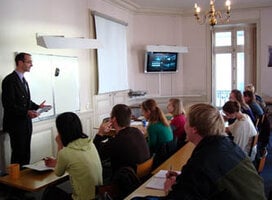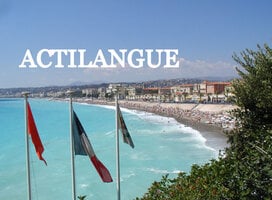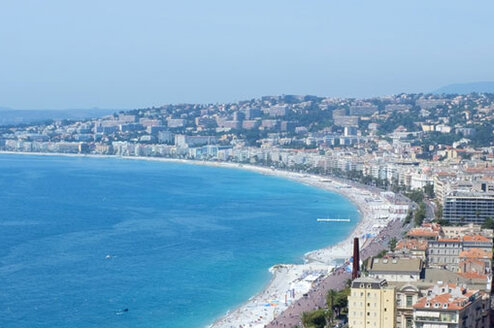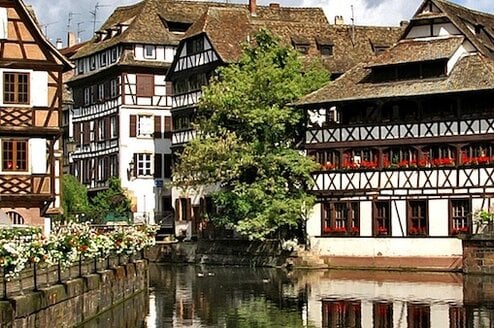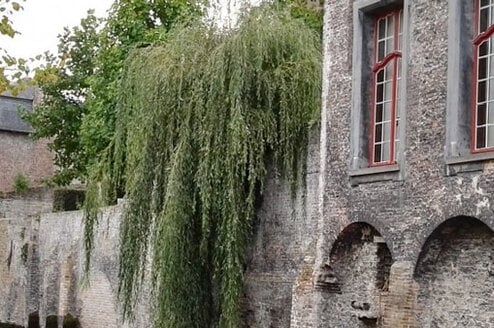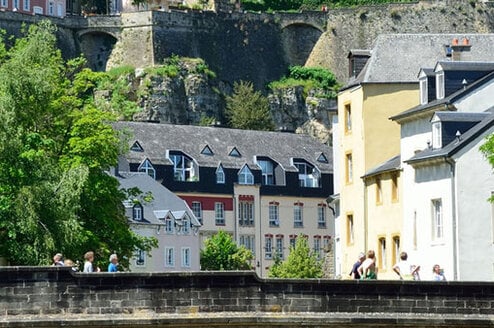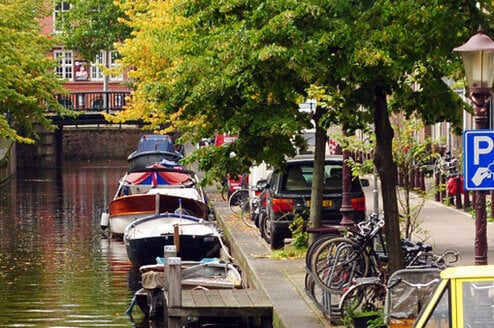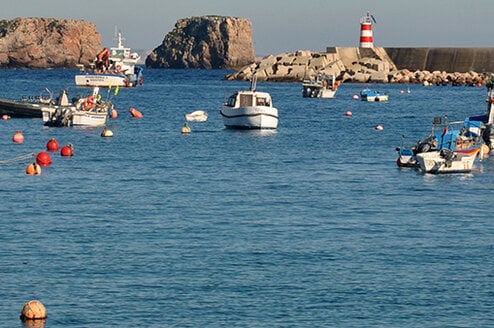Study Abroad Programs in France
If you have been dreaming of studying abroad, France may be a great option for many reasons. France is one of the most influential countries in the world, with a culture that has helped shape fashion, food, industry, and the arts for several centuries. Its cities are enduring symbols of grandeur and sophistication, captivating the millions of tourists who visit every year.
But by being an international student in France, you have the chance to go beyond the tourist highlights. Whether you want to experience the bustling city life of Paris, the laid-back beauty of the south, or the remote beauty of an Alpine town, a study abroad program in France will give you an insight into that je ne sais quoi that makes the France so...well, French.
Most foreigners only have eyes for Paris, but it’s worth having a look at the other major French cities to find the one with the perfect climate, scenery, academics, and atmosphere for you.
Paris
Most people’s first choice for study abroad in France will probably be Paris. It’s one of the most famous and iconic cities in the world, and the opportunity to immerse yourself in that chic Parisian lifestyle is a huge draw for international students. Paris can be exactly as romantic, fascinating, and culturally enriching as you imagine, but be warned: your student budget will severely limit your exposure to high fashion and fine cuisine. Common courses students like to take in the City of Lights include Fashion Design, Business, International Affairs, and French Language.
Grenoble
Grenoble benefits from an exceptional location at the foot of the Alps, but it is the city’s excellent innovation hubs that make it an attractive location for students. It has been voted France’s best student city several times, thanks in part to its huge student population (about a third of residents attend a local university). It is perfect for outdoorsy folks, ski enthusiasts, and students of engineering and the sciences. Study subjects like Business, Accounting, Art History, Film, and History with CEA Study Abroad in Grenoble.
Strasbourg
Strasbourg is the capital of the Alsace (now Grand Est) region of France, known for its unique Franco-German culture and architecture. The result looks like something out a fairytale: colorful half-timbered houses, cobbled streets, and a majestic medieval cathedral. Strasbourg is picturesque and historical, but it is also a modern city, with a large student population and unparalleled transport links to Central Europe. Study, travel, and intern in Strasbourg under the guidance of an international staff with Syracuse University Abroad.
Nice
Students flock to Nice for exceptionally sunny weather, great beaches, and glamorous French Riviera lifestyle, but its rich history (spanning back to the Ancient Greeks) and cultural highlights are also big draws. You are also extremely close to both Monaco and Italy, although trips along the Riviera do tend to be on the expensive side.
Most major French cities see a high influx of both tourists and international students, making them relatively easy to navigate and settle into. The language and cultural barrier become more pronounced if you decide to study abroad in a more rural area in France.
How to Choose a Study Abroad Program in France
It all depends on what matters to you. Some students choose study abroad programs in France based on climate (going for somewhere sunny and southern like Cannes or Marseilles), some decide based on cultural attractions (such as the world-class museums of Paris or the famous wine industry of Bordeaux), and some prefer to choose based on a city’s reputation in an academic subject (for instance, Grenoble for engineering or Toulouse for history and political science). It's also important to choose a program that will transfer credits back to your home institution.
Once you've started researching study abroad programs in France, make sure to read reviews and interviews left by alumni who have already gone through the experience. It can provide insight into the organization, the courses, the environment, and more.
Housing
There is a marked difference between living in Paris and living anywhere else in the country. Paris is extremely expensive, and space is a luxury. Student accommodation is often a “chambre de bonne,” a single room within a local family’s house. Take advantage of this homestay opportunity to live, learn, and interact with a French family on a daily basis. Private student residences are increasingly popular, but these are often a more expensive option.
Everywhere else, students usually share an apartment. You can find people to live with on websites like A Partager, or your university may have its own listings.
Visas
Your student visa for France will depend on the length of the course. If you are studying for three months or less, you will need a visa de court séjour pour études (short-stay student visa). For a stay between three and six months, you will need a visa de long séjour temporaire pour études (temporary long-stay student visa). Neither of these require a residence permit.
For anything longer than six months, you need a visa de long séjour études (long-stay student visa). This acts as a residence permit in itself and involves some more detailed paperwork. Your university should be able to provide some guidance if you need it.
EU and Swiss nationals do not require a visa to study in France.
Most French universities are public and have very affordable tuition costs. Private universities and Grandes Écoles, the most prestigious and selective institutions in the country, are usually more expensive.
Given the affordable cost of public higher education in France, many students can afford to pay their tuition fees without additional funding. That said, there are several scholarships available to international students to help with tuition and the cost of living (which can be quite expensive!). If all fails, there are plenty of opportunities to work part-time (up to 20 hours) while studying abroad in France.
There are countless study abroad grants and scholarships across all levels and categories, most of which are funded by the French government and open to international students. You can also find France-specific study abroad scholarships for undergraduate and graduate students. The best way to find out which ones are available to you is to get in touch with the universities you are interested in attending.
Most Grandes Écoles have scholarships for international students that pass the entrance exams.
Study Abroad Programs in France
Pagination
What People Are Saying
Related Study Abroad Articles
Frequently Asked Questions
-
What is the best city to study abroad in France?
France is great and you really can't go wrong with most cities! However, it depends on what kind of vibe you want in a study abroad locale to determine the best location for you. Are you a beach-goer? Try Cannes or Nice. Looking for a big city? Paris or Bordeaux. Want to be really immersed in French culture? Try looking for programs in smaller cities or towns.
-
Is France safe for international students?
In general, most cities and towns in France are quite safe. In bigger cities like Paris, you'll want to watch out for pickpockets, so make sure to know where your belongings are at all times. Like in all cities, you may want to avoid walking alone at night. But in general, France is a safe place for international students.
-
Do I need to learn French to study in France?
If you're interested in studying abroad in France, it is not necessary to speak French. Many international programs are taught in English, and most will offer beginner-level French classes to help you navigate your host country.
-
Can I work while studying in France?
If you are studying abroad in France, you are legally allowed to work up to 20 hours per week.
Related Content -
What are the requirements to study in France?
Requirements to study in France will vary depending on the program. Some schools or providers will have GPA or language requirements. Others might require that you study French once attending a university there. Make sure to contact the program with specific questions about requirements to make sure you are eligible to apply.
-
How much does it cost to study in France?
If you plan on studying abroad in France, expect to spend between $3,500-$4,500 per semester after airfare and program fees.
Related Content


